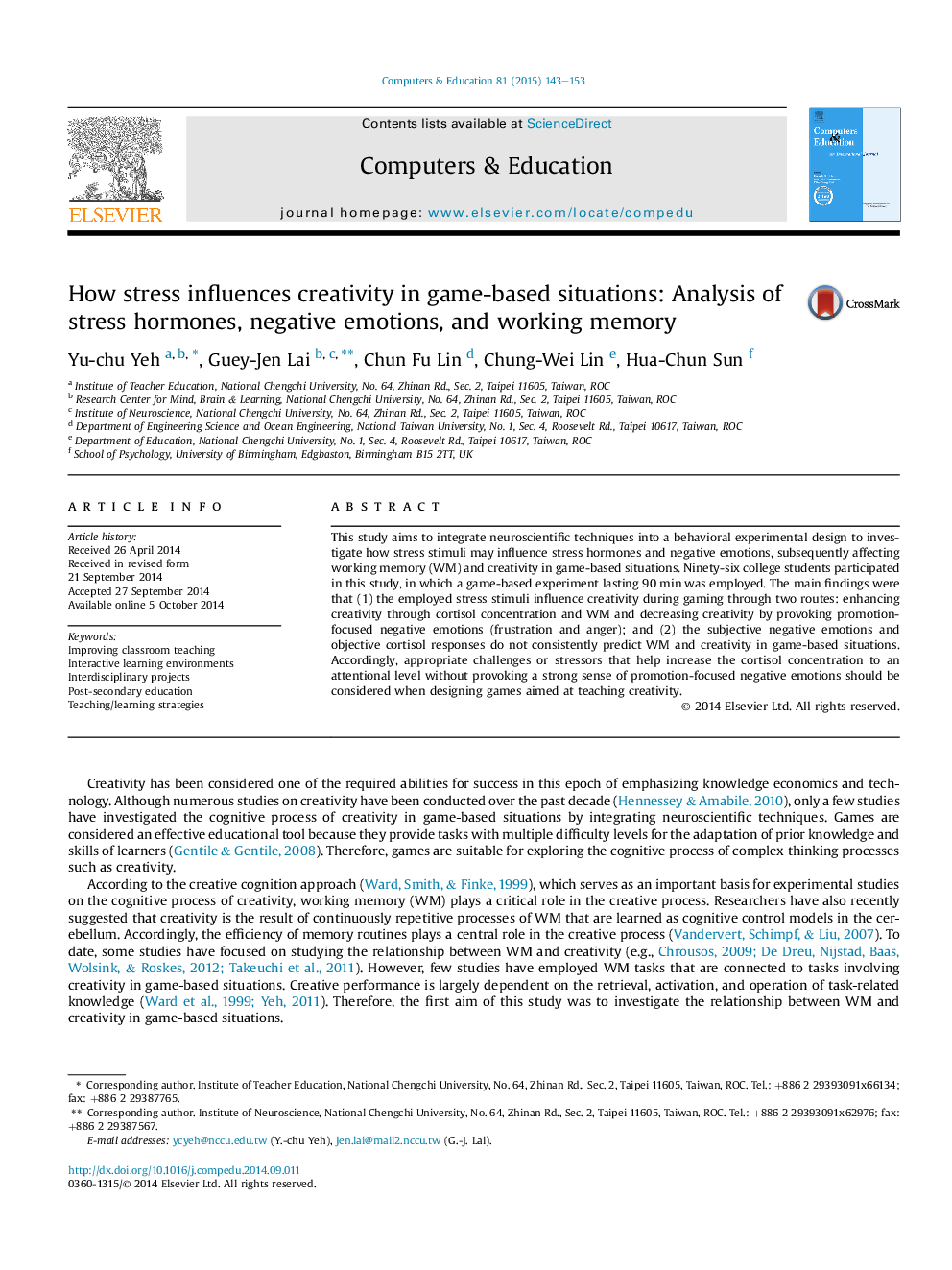| Article ID | Journal | Published Year | Pages | File Type |
|---|---|---|---|---|
| 348331 | Computers & Education | 2015 | 11 Pages |
•Stress influences creativity during gaming through two routes.•Working memory is a mediator of cortisol response and game-based creativity.•Cortisol responses influence working memory during gaming.•Highly activated and promotion-focused negative emotions decrease creativity.
This study aims to integrate neuroscientific techniques into a behavioral experimental design to investigate how stress stimuli may influence stress hormones and negative emotions, subsequently affecting working memory (WM) and creativity in game-based situations. Ninety-six college students participated in this study, in which a game-based experiment lasting 90 min was employed. The main findings were that (1) the employed stress stimuli influence creativity during gaming through two routes: enhancing creativity through cortisol concentration and WM and decreasing creativity by provoking promotion-focused negative emotions (frustration and anger); and (2) the subjective negative emotions and objective cortisol responses do not consistently predict WM and creativity in game-based situations. Accordingly, appropriate challenges or stressors that help increase the cortisol concentration to an attentional level without provoking a strong sense of promotion-focused negative emotions should be considered when designing games aimed at teaching creativity.
